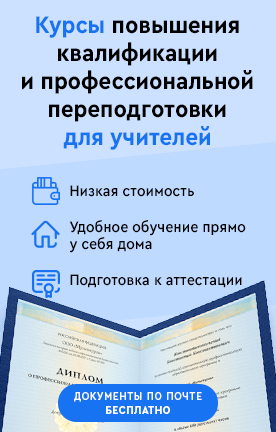Урок разработан для восьмого класса. Соответствует программе 2014-15 года города Астаны. Так наша школа неимеет возможности примениения на каждом уроке интерактивной доски, поэтому урок проходит без презентации, но с преиенением индивидуальных карточек. В уроке имеется речевая размика в виде вопросов, работа с текстом(перевод и ответы на вопросы) и работа с гамматикой( present Siple tense). Тема грамматики выбрана не случайно, так как по календарно-тематическому планированию на следующем уроке будет предствлена грамматическая тема "Условные предложения 1 типа". Задания также представлены для слабых и сильных учеников. Двлее по лану задание на дом и подведение итогов. Надеюсь моя работа будет кому нибудь полезна!!
Создайте Ваш сайт учителя Курсы ПК и ППК Видеоуроки Олимпиады Вебинары для учителей
Education in the USA
Вы уже знаете о суперспособностях современного учителя?
Тратить минимум сил на подготовку и проведение уроков.
Быстро и объективно проверять знания учащихся.
Сделать изучение нового материала максимально понятным.
Избавить себя от подбора заданий и их проверки после уроков.
Наладить дисциплину на своих уроках.
Получить возможность работать творчески.
Просмотр содержимого документа
«Education in the USA »
Полезное для учителя
Распродажа видеоуроков!
1250 руб.
2090 руб.
1390 руб.
2310 руб.
1340 руб.
2240 руб.
1340 руб.
2240 руб.
Курсы ПК и ППК для учителей!
800 руб.
4000 руб.
800 руб.
4000 руб.
800 руб.
4000 руб.
800 руб.
4000 руб.
ПОЛУЧИТЕ СВИДЕТЕЛЬСТВО МГНОВЕННО
* Свидетельство о публикации выдается БЕСПЛАТНО, СРАЗУ же после добавления Вами Вашей работы на сайт
Удобный поиск материалов для учителей
Проверка свидетельства




















